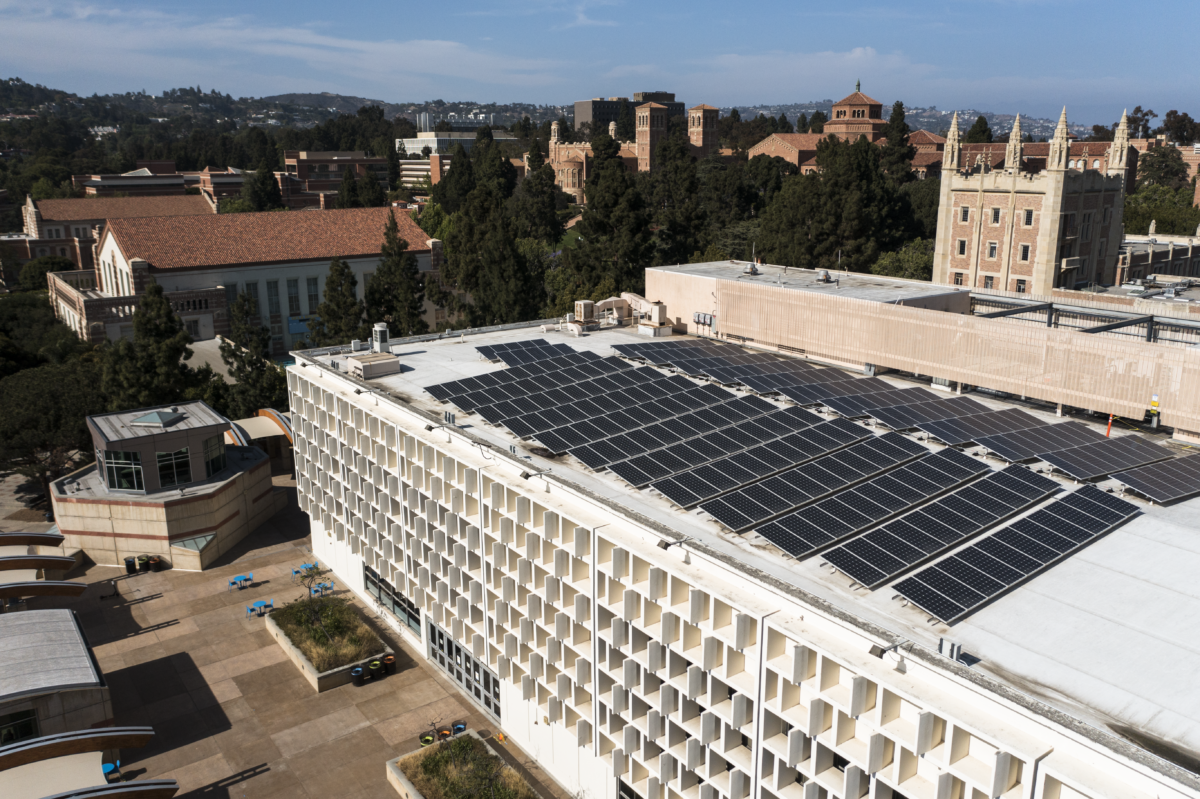
The yearlong effort will support the development of a long-term plan for cutting carbon emissions.
By Karen Hallisey
Imagine a better-powered UCLA that phases out fossil fuels in favor of renewables, slashing pollution. To further green the campus, UCLA is embarking on a decarbonization study to identify ways to accelerate and achieve a switch in usage to low-carbon energy sources. The study is part of a University of California (UC) systemwide climate action commitment to bend the warming curve, clear our air, and advance a healthier and thriving California.
Decarbonization is the term for reducing or eliminating carbon gas emissions and is accomplished by switching to cleaner energy alternatives, like wind, solar, and hydro power. CO2 is the primary greenhouse gas emitted through human activities that warms the planet, causing climate change.
Since the University of California began tracking its climate impact in 2009, it has cut carbon emissions by a quarter despite significantly increasing its enrollment, saved $400 million in energy costs by improving efficiency, and built more than 100 on-campus solar projects. These achievements have helped put UC at the top of the Environmental Protection Agency’s ranking for green power usage by U.S. colleges and universities.
In July 2023, UC adopted a stronger climate policy that commits all 10 campuses and their medical centers to reduce total greenhouse gas emissions by 90% by 2045, aligning the university system’s plans with the net-zero carbon pollution goals set by the state of California.
In this coordinated response to the climate crisis, all UC locations, including UCLA, will be expected to lower their greenhouse gas output and negate any residual GHG emissions through investments in carbon removal projects. Funding for the decarbonization planning effort has been allocated by the UC Office of the President to help UCLA and each campus to meet the challenge of reducing on-site fossil fuel use.
UCLA has kept its emissions below 1990 levels through the use of a highly efficient cogeneration plant, solar electricity, and continuing energy efficiency efforts, like the Smart Buildings and Labs Program. “UCLA led on energy innovation with our cogeneration plant and early use of landfill gas, saving millions of pounds of CO2 by generating electricity, steam, and chilled water together. Now we are looking to the future and how we can further transform UCLA’s energy infrastructure in response to the worsening climate crisis.”
The study UCLA is embarking on is being conducted by consultants from WSP, a firm that provides technical expertise and strategy advice across sectors that include energy. WSP is advised by a campus Decarbonization Task Force that includes faculty experts, students, and staff operations experts. Bruins will be able to engage and get involved in the study through tabling events and town hall meetings. In addition to the technical analysis the study will also explore equity and climate justice considerations, and the potential for applied learning and research on the path to decarbonization. UCLA’s study will be completed this summer. The study will support the development of an updated Climate Action Plan for UCLA and fulfill the university Sustainability Plan commitment to create a pathway to decarbonization.
The first Town Halls will be held virtually via Zoom on March 11, with two time options – noon and 6pm. You can register for the Town Halls, and follow the progress of the study on this page: https://sustain.ucla.edu/climate-and-energy/ucla-decarbonization-planning/.
